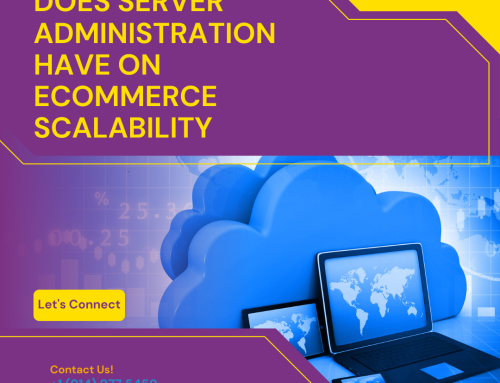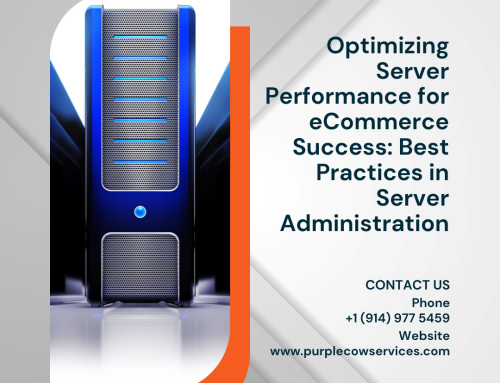In the world of eCommerce, server administration plays a critical role in ensuring the smooth functioning and optimal performance of online stores. Proper server management and maintenance are essential for delivering a seamless customer experience, safeguarding data, and maximizing uptime.
Share This Story, Choose Your Platform!
In this comprehensive guide, we will explore the best practices for server administration that will help eCommerce businesses operate efficiently and effectively.
Importance of Server Administration in eCommerce
Ensuring Website Availability:
Reliable server administration practices are crucial to maintain high website availability and prevent downtime, which can result in lost sales and damage to the brand reputation.
Managing Traffic and Scalability:
Effective server administration allows eCommerce businesses to handle varying levels of website traffic, ensuring smooth operations during peak times and scalability to accommodate future growth.
Enhancing Security Measures:
Server administration practices focus on implementing robust security measures to protect sensitive customer data, defend against cyber threats, and meet compliance standards.
Server Configuration and Optimization
Choosing the Right Server:
Evaluate your eCommerce needs and select the appropriate server type, whether it’s a dedicated server, virtual private server (VPS), or cloud hosting, considering factors like performance, scalability, and cost.
Optimizing Server Performance:
Fine-tune server configurations, optimize resource allocation, and utilize caching mechanisms to enhance website loading speed and overall performance.
Monitoring Resource Usage:
Regularly monitor server resource utilization, including CPU, memory, and disk space, to identify and resolve bottlenecks that may affect website performance.
Security and Data Protection
Implementing Secure Network Architecture:
Configure firewalls, employ intrusion detection and prevention systems (IDPS), and utilize virtual private networks (VPNs) to safeguard your eCommerce server from unauthorized access.
Regular Updates and Patches:
Keep server software and applications up to date with the latest security patches to address vulnerabilities and protect against potential security breaches.
Implementing Data Encryption:
Encrypt sensitive data, such as customer information and payment details, both during transmission and storage, using robust encryption protocols like SSL/TLS.
Backup and Disaster Recovery
Regular Data Backups:
Perform scheduled backups of your eCommerce website and databases to ensure that in the event of data loss or system failure, you can restore critical information and resume operations swiftly.
Offsite Storage and Redundancy:
Store backup data in secure offsite locations or utilize cloud-based backup solutions to minimize the risk of data loss due to physical damage or server failures.
Testing and Documenting Recovery Procedures:
Regularly test your disaster recovery plan to ensure its effectiveness. Document the procedures and keep them up to date, so you can quickly recover from any unforeseen events.
Monitoring and Performance Optimization
Real-time Server Monitoring:
Utilize server monitoring tools to track key performance indicators, monitor server health, and receive alerts in case of any anomalies or potential issues.
Website Performance Testing:
Conduct regular performance tests to identify and address bottlenecks, optimize website speed, and ensure a seamless user experience.
Content Delivery Network (CDN) Integration:
Utilize CDNs to distribute website content across multiple servers globally, reducing latency and improving website loading speed for users across different geographic locations.
Final Thoughts
Efficient server administration is a crucial component of running a successful eCommerce business. By implementing the best practices outlined in this guide, including server configuration and optimization, security measures, backup and disaster recovery strategies, and proactive monitoring, you can ensure seamless eCommerce operations, deliver an exceptional customer experience, and protect your business from potential disruptions. Stay proactive, keep your server infrastructure up to date, and regularly assess and improve your server administration practices to adapt to evolving business needs. By following these best practices, you can optimize the performance, security, and scalability of your eCommerce operations, ultimately driving growth, building customer trust, and achieving long-term success in the competitive online marketplace.
Remember, server administration is an ongoing process, and staying vigilant in managing your servers is essential to maintaining a seamless eCommerce experience. By prioritizing server administration best practices, you are investing in the foundation of your online business and setting the stage for sustainable growth and customer satisfaction. Embrace these practices, leverage the power of efficient server administration, and watch your eCommerce operations thrive.
Whether you manage your servers in-house or rely on external server administrators, make sure to allocate the necessary resources and expertise to maintain a robust and secure server infrastructure. By doing so, you can focus on what matters most—delivering a flawless eCommerce experience to your customers and driving your business towards continued success.
Unlock the potential of your eCommerce operations with Purple Cow‘s expert server administration services. From optimizing server performance to ensuring top-notch security and seamless scalability, our team of skilled professionals will handle all aspects of server management. Trust Purple Cow to keep your online store running smoothly, providing a seamless shopping experience for your customers and driving your business towards greater success.

















